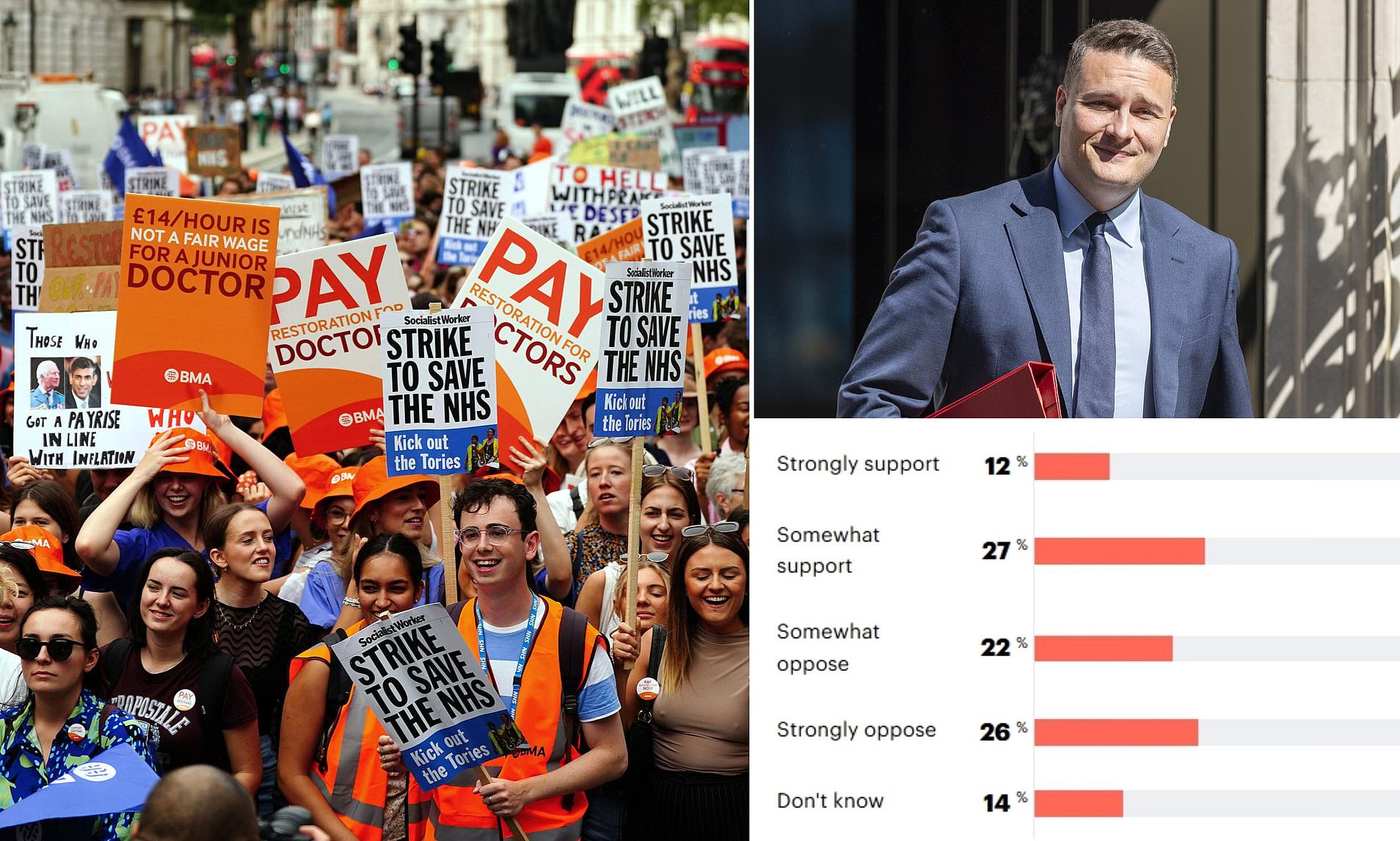Rising Tensions as Resident Doctors Prepare for Strike Action
Resident doctors in the UK are set to take part in a five-day strike from July 25 to July 30, aiming to bring hospital services to a standstill. This industrial action comes after years of disputes over pay and working conditions, with thousands of medics demanding a significant pay increase.
The British Medical Association (BMA) has stated that they have no choice but to call for strikes due to the government’s failure to present a “credible offer” to restore their wages. The group of medics has previously engaged in industrial action on 11 occasions since 2002, causing disruptions and leading to the cancellation of around 1.5 million appointments.
In May, resident doctors were offered a 5.4 per cent pay uplift following a review of public sector pay. This increase was recommended by an independent pay review body and was above the rate of inflation, which had risen to 3.5 per cent in April—the highest since January 2024. However, union leaders described this raise as an “insult” and insisted that a 29.2 per cent pay increase is essential to reverse the effects of pay erosion since 2008.
Dr Melissa Ryan and Dr Ross Nieuwoudt, co-chairs of the BMA resident doctors committee, expressed their disappointment in recent negotiations with Health Secretary Wes Streeting. They highlighted that while efforts were made to avoid strike action, the government has refused to negotiate on pay, focusing instead on non-pay elements without providing clarity on what these might be.
“The Government knows what is needed to avert strikes. The choice is theirs,” they said. The union emphasized that the strikes do not have to happen if there is a serious commitment from the government to address their concerns.
The proposed strike will begin at 7am on July 25 and end at 7am on July 30, covering five days. Health Secretary Wes Streeting has warned that such walkouts would be “immensely disruptive for patient care” and urged the government to find a resolution before the action begins.
Public opinion on the issue has shifted, according to a YouGov poll. While 52 per cent of Britons supported striking junior doctors last summer, the current figure stands at 48 per cent opposing the strike, with 39 per cent supporting it. This represents a change in public sentiment compared to previous months.
Earlier this year, BMA members accepted a government pay deal worth 22.3 per cent on average over two years. In May, resident doctors received a 4 per cent uplift plus £750, resulting in an average pay rise of 5.4 per cent. Despite this, the demand for a much higher increase remains strong.
The turnout for the strike action ballot was 55.3 per cent, down from 61.9 per cent in 2024. Previous ballots had higher participation rates, with 71.3 per cent in June to August 2023 and 77.5 per cent in January to February. Of those who voted, 90 per cent supported the strike, meaning approximately 49.8 per cent of BMA resident doctor members approved the action.
The BMA’s demand for a 29.2 per cent pay increase is based on the Retail Prices Index (RPI) inflation, which measures changes in the price of goods and services for households. There are around 77,000 resident doctors in England, working across various settings including GP surgeries and hospitals. The term “resident doctor” encompasses all doctors in training, ranging from graduates to those with over a decade of experience.







